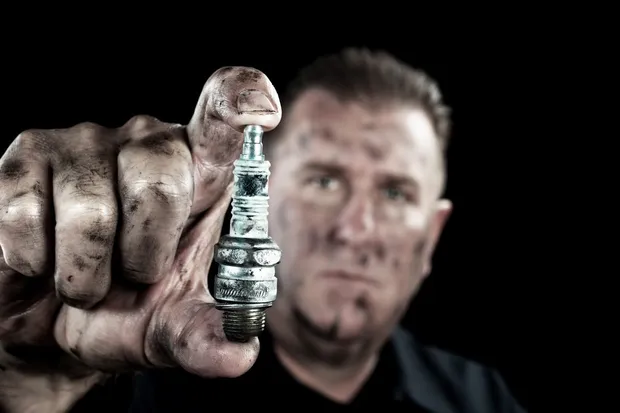Spark plugs make your spark-ignition car run. If you have trouble starting your car or gaining access to the engine power you need, you may have a spark plug problem on your hands. If you keep driving the car without tending to this problem, you can develop even more severe engine issues.
Fortunately, auto makers design their engines so that technicians can troubleshoot, remove, and replace these small components with relative ease. Here are some important points to absorb regarding how spark plugs work, why they fail, and how to recognize and fix the problem.
How Spark Plugs Work
A spark plug provides the necessary spark that ignites the mix of oxygen and fuel in your engine’s combustion chambers. The bottom of this cylindrical plug includes a grounded terminal and threads for screwing the plug into the top of the combustion chamber. The spark plug’s top includes an electrode.
Your car’s ignition coils sit on top of the spark plugs. When these ignition coils send electricity to the spark plugs, an enormously potent spark spans the gap between the electrode and the spark plug body.
The electricity conveyed from the spark plug to the combustion chamber causes a tiny, controlled explosion within the chamber. As the fuel ignites, the gases with the chamber expand rapidly. This force pushes the pistons, which in turn push connecting rods to turn the car’s crankshaft.
How Spark Plugs Go Bad
Spark plugs that repeatedly endure these high-voltage charges of electricity will inevitably start to wear out. Standard-quality spark plugs can usually last for about 40,000 miles before they require replacing. Premium spark plugs made of special metals such as iridium and platinum may last over 100,000 miles.
Electrode wear commonly features in age-related spark plug failure. As the electrode starts to wear out, the gap between it and the spark plug body gets wider. As a result, it needs more and more voltage to send the necessary charge to the combustion chamber. Eventually, it stops working altogether.
Not all spark plug failures stem from natural causes. Technicians who install spark plugs must take care to set the proper gap distance for the electrodes. A spark plug gap set too wide can prevent even a brand-new spark plug from performing properly.
Improperly-firing spark plugs can also permit carbon deposits to build up on the electrodes. This condition, known as carbon fouling, can further interfere with spark plug function. In other cases, a crack in a spark plug’s grounding plate can prevent it from firing.
How Other Components Affect Spark Plug Function
Your spark plugs interact with a variety of other components in your car’s ignition system. A problem in one of these components can damage your spark plugs, or at least prevent them from doing their job properly.
Ignition coils offer a prime example. If an ignition coil fails, or if some other fault in the electrical system keeps the coil from sending the necessary voltage to the spark plug electrode, the corresponding spark plug will not fire correctly. Stalling, rough idling, and sluggish acceleration may result.
You may see oil or yellowish deposits fouling a spark plug. The former indicates a problem with oil making its way into the combustion chamber, while the latter may mean that your engine runs too hot, with too strong a charge going to the electrodes.
How to Deal With Your Spark Plug Problem
Our auto shop can diagnose a bad spark plug along with any other contributing factors that require attention. With luck, you may need nothing more than a new spark plug or new ignition coil. If an underlying issue such as engine overheating or internal oil leakage contributes to the problem, you need to get that issue fixed as well.
Preventative maintenance can go a long way toward preventing future spark plug problems. Follow the service schedule recommended by your auto maker, and change any spark plugs that show obvious signs of premature wear or fouling.
Powers Transmissions can help you keep the spark in your spark plugs. Contact us to schedule any necessary service.

